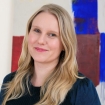Resilient Community impact stories from around the PwC network
Our stories
Working alongside others and responding to local needs we are focusing on helping communities to become more resilient now and for the future. We are helping our communities build new skills, prevent and adapt to the impacts of climate change, and create more equitable opportunities for people so they can thrive.
Filter by:
Follow us








© 2017 - 2026 PwC. All rights reserved. PwC refers to the PwC network and/or one or more of its member firms, each of which is a separate legal entity. Please see www.pwc.com/structure for further details. This content is for general information purposes only, and should not be used as a substitute for consultation with professional advisors.












